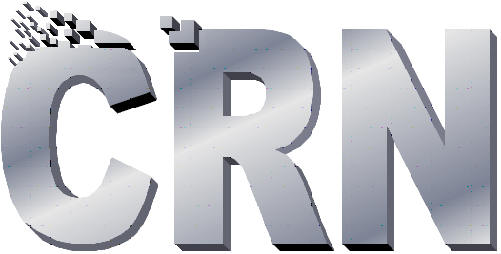|



New!
Nanotech Scenario Series









Join the
conversation at
CRNtalk!
| |
Current Results of Our Research
These pages, marked with
GREEN headings, are published for
comment and criticism. These
are not our final findings; some of these opinions will probably change.
LOG OF UPDATES
CRN Research: Overview of Current Findings
Thirty Essential Nanotechnology Studies - #4
Overview of all studies: Because of the largely
unexpected transformational power of molecular manufacturing, it is urgent to
understand the issues raised. To date, there has not been anything approaching
an adequate study of these issues. CRN's recommended series of
thirty essential studies
is organized into five sections, covering fundamental theory, possible
technological capabilities, bootstrapping potential, product capabilities, and
policy questions. Several preliminary conclusions are stated, and because our
understanding points to a crisis, a parallel process of conducting the studies
is urged.
CRN is actively looking for researchers interested in
performing or assisting with this work. Please contact CRN Research Director
Chris Phoenix if you would like more information or if you have comments on
the proposed studies.
| Study #4 |
What
is the performance and potential of biological programmable manufacturing
and products? |
| |
Biology has been
making complex molecules and structures for billions of years, and
self-replicators already exist and produce cheap valuable products. Can this
be harnessed to produce engineered products? |
| Subquestion |
Can the
rules of protein folding and self-assembly be accessed to design novel
proteins, structures, and machines? |
| Preliminary answer |
Progress is
preliminary, but encouraging. A new protein fold has been designed and
tested. In "Molecular engineering: An approach to the development of general
capabilities for molecular manipulation" (PNAS, 78(9), Sept. 1981), Drexler
pointed out that protein engineering should be much easier than solving the
protein folding problem for natural proteins. |
| Subquestion |
Can
intracellular transport mechanisms be adapted to increase the
programmability of part assembly? |
| Preliminary answer |
Biological motors
have been extracted from cells and made to run. Programmability would depend
on whether some way other than diffusing chemicals could be found to power
them. |
| Subquestion |
How
efficiently can new genetic specifications be synthesized and transferred
into cells? |
| Preliminary answer |
Progress is being
made... Study the cost per nucleotide vs. time. Also look at plasmid and
artificial chromosome development. |
| Subquestion |
Can the
rules of multicellular structure formation (analogous to ontology or
cellular specialization) be accessed to design larger products?
|
| Preliminary answer |
Good question. MIT
work on amorphous computing may be relevant. |
| Subquestion |
What would
be the performance of engineered systems based on biological materials, with
or without augmented biochemistry? |
| Preliminary answer |
Strength: perhaps
comparable to modern polymers. Computation: with augmented chemistry, could
include molecular electronics. This depends largely on covalent bond
density. |
| Subquestion |
What would
be the production speed of a biology-based manufacturing system? |
| Preliminary answer |
Unknown. |
| Subquestion |
What is the
smallest size (genome and physical) of a viable cell? |
| Preliminary answer |
Unknown. |
| Subquestion |
Can
extracellular protein synthesis systems improve any of these answers? |
| Preliminary answer |
Unknown. |
| Conclusion |
More research will be needed to tell whether this technology can be
revolutionary, but it looks promising so far.
|
| Other studies |
1.
Is
mechanically guided chemistry a viable basis for a manufacturing technology?
2. To what extent is molecular manufacturing counterintuitive and
underappreciated in a way that causes underestimation of its importance?
3. What is
the performance and potential of diamondoid machine-phase chemical
manufacturing and products?
5. What is the performance and potential of nucleic acid
manufacturing and products?
6. What other chemistries and options should be studied?
7. What
applicable sensing, manipulation, and fabrication tools exist?
8. What will be required to develop diamondoid machine-phase chemical
manufacturing and products?
9. What will be required to develop biological programmable
manufacturing and products?
10. What will be required to develop nucleic acid manufacturing and
products?
11. How rapidly will the cost of development decrease?
12. How could an effective development program be structured?
13. What is
the probable capability of the manufacturing system?
14. How capable will the products be?
15. What will the products cost?
16. How rapidly could products be designed?
17. Which
of today's products will the system make more accessible or cheaper?
18. What new products will the system make accessible?
19. What impact will the system have on production and distribution?
20. What effect will molecular manufacturing have on military and
government capability and planning, considering the implications of arms
races and unbalanced development?
21. What effect will this have on macro- and microeconomics?
22. How can proliferation and use of nanofactories and their products
be limited?
23. What effect will this have on policing?
24. What beneficial or desirable effects could this have?
25. What effect could this have on civil rights and liberties?
26. What are the disaster/disruption scenarios?
27. What effect could this have on geopolitics?
28. What policies toward development of molecular manufacturing does
all this suggest?
29. What policies toward administration of
molecular manufacturing does all this suggest?
30. How can appropriate policy be made and implemented?
|
| Studies should begin
immediately. |
The situation is
extremely urgent. The stakes are unprecedented, and the world is unprepared.
The basic findings of these studies should be verified as rapidly as
possible (months, not years). Policy preparation and planning for
implementation, likely including a crash development program, should begin
immediately. |
DEVIL'S ADVOCATE —
Submit your criticism, please!
(Sorry, no one has complained about this page yet, and we
couldn't think of anything to write. Please
contact us
with your questions, criticisms, and other suggestions.)
|
